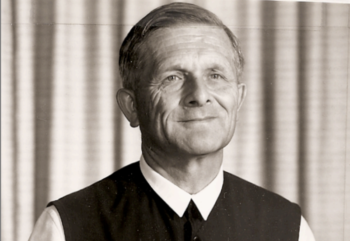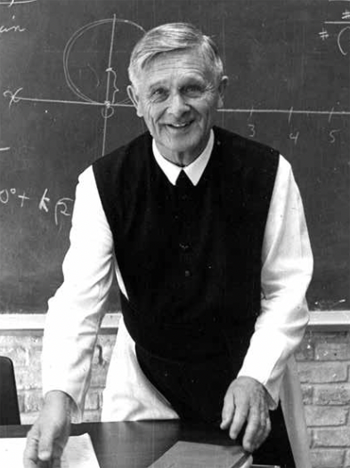By Joe Arlinghaus –

The Russians invaded Hungary in November 1956 to suppress the uprising that had developed in October against totalitarian rule. Thousands of Hungarians were killed as they resisted.
A column of Soviet tanks arrived outside the small village where Father Placid was living. As a speaker of Russian, he went out to the bridge into town to try and turn away this group of soldiers. Countless small towns had been the victims of the Russian soldiers and the people were fearful they would be next.
To fully understand what happens next, you have to understand how deeply ingrained in the peoples of the Eastern Orthodox world is the Easter greeting. Every Orthodox person awaits Easter day with a special very austere Lent and then when Easter comes, they invariably greet each other in the language of their church with the ancient words.
The first person announces to his friend, “Christ is Risen” and the reply immediately comes back “Truly He is Risen.” Even the most hardened adult atheist from Eastern Europe knows this greeting as well as he knows his own name. And it is always an occasion of joy to say it.
As the lead Soviet tank approached the bridge and encountered this very small Hungarian priest, the commander opened his hatch and shouted for this little man to move. Certainly, full of fear yet bold also, Father Placid shouted out the words “Christos voskres! (Christ is Risen)”, with hope that even a Soviet soldier would remember the old Russian Easter greeting.
After a brief pause, the angry soldier shouts back “Voistinu voskres! (Truly he is risen)” and a smile crossed his face. He jumps from the tank and gives Father Placid the triple kiss also common in Russia with the Easter greeting.
And out come the soldiers and out comes the vodka and a small celebration begins there on the bridge. Who knows how many of these soldiers were even faithful Orthodox Christians. Maybe none. But the latent Christian culture still had some hold on them enough that these Russian words from a slight Hungarian priest sent them away from the village and on to somewhere else.

This was a story I heard over three decades ago. I’m sure some details are wrong and I imagine there are many more interesting details as well.
Thank you, Lord on this day where you conquered even death for the great example and teaching of this great but small priest.
Father Placid Csizmazia (1915 – 1999) taught Latin and Greek in the Classics Department at the University of Dallas from the 1960’s to the 1990’s. To find out more, click here
Joe Arlinghaus is the president of Valor America. Learn more here



